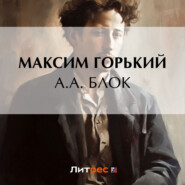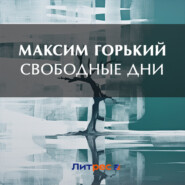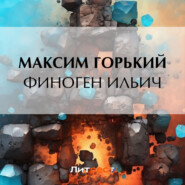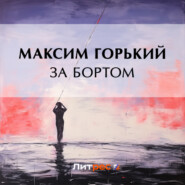По всем вопросам обращайтесь на: info@litportal.ru
(©) 2003-2025.
✖
Mother
Настройки чтения
Размер шрифта
Высота строк
Поля
The mother and Sofya began to untie their sacks. Rybin bent down over them, and said with satisfaction:
"That's it! Well, well – not a few, I see. Have you been in this business a long time? What's your name?" he turned toward Sofya.
"Anna Ivanovna. Twelve years. Why?"
"Nothing."
"Have you been in prison?"
"I have."
He was silent, taking a pile of books in his hand, and said to her, showing his teeth:
"Don't take offense at the way I speak. A peasant and a nobleman are like tar and water. It's hard for them to mix. They jump away from each other."
"I'm not a lady. I'm a human being," Sofya retorted with a quiet laugh.
"That may be. It's hard for me to believe it; but they say it happens. They say that a dog was once a wolf. Now I'll hide these books."
Ignaty and Yakob walked up to him, and both stretched out their hands.
"Give us some."
"Are they all the same?" Rybin asked of Sofya.
"No, they're different. There's a newspaper here, too."
"Oh!"
The three men quickly walked into the shack.
"The peasant is on fire," said the mother in a low voice, looking after Rybin thoughtfully.
"Yes," answered Sofya. "I've never seen such a face as his – such a martyrlike face. Let's go inside, too. I want to look at them."
When the women reached the door they found the men already engrossed in the newspapers. Ignaty was sitting on the board, the newspaper spread on his knees, and his fingers run through his hair. He raised his head, gave the women a rapid glance, and bent over his paper again. Rybin was standing to let the ray of sun that penetrated a chink in the roof fall on his paper. He moved his lips as he read. Ignaty read kneeling, with his breast against the edge of the board.
Sofya felt the eagerness of the men for the word of truth. Her face brightened with a joyful smile. Walking carefully over to a corner, she sat down next to the mother, her arm on the mother's shoulder, and gazed about silently.
"Uncle Mikhaïl, they're rough on us peasants," muttered Yakob without turning.
Rybin looked around at him, and answered with a smile:
"For love of us. He who loves does not insult, no matter what he says."
Ignaty drew a deep breath, raised his head, smiled satirically, and closing his eyes said with a scowl:
"Here it says: 'The peasant has ceased to be a human being.' Of course he has." Over his simple, open face glided a shadow of offense. "Well, try to wear my skin for a day or so, and turn around in it, and then we'll see what you'll be like, you wiseacre, you!"
"I'm going to lie down," said the mother quietly. "I got tired, after all. My head is going around. And you?" she asked Sofya.
"I don't want to."
The mother stretched herself on the board and soon fell asleep. Sofya sat over her looking at the people reading. When the bees buzzed about the mother's face, she solicitously drove them away.
Rybin came up and asked:
"Is she asleep?"
"Yes."
He was silent for a moment, looked fixedly at the calm sleeping face, and said softly:
"She is probably the first mother who has followed in the footsteps of her son – the first."
"Let's not disturb her; let's go away," suggested Sofya.
"Well, we have to work. I'd like to have a chat with you; but we'll put it off until evening. Come, boys."
CHAPTER IV
The three men walked away, leaving Sofya in the cabin. Then from a distance came the sound of the ax blows, the echo straying through the foliage. In a half-dreamy condition of repose, intoxicated with the spicy odor of the forest, Sofya sat just outside the door, humming a song, and watching the approach of evening, which gradually enfolded the forest. Her gray eyes smiled softly at some one. The reddening rays of the sun fell more and more aslant. The busy chirping of the birds died away. The forest darkened, and seemed to grow denser. The trees moved in more closely about the choked-up glade, and gave it a more friendly embrace, covering it with shadows. Cows were lowing in the distance. The tar men came, all four together, content that the work was ended.
Awakened by their voices the mother walked out from the cabin, yawning and smiling. Rybin was calmer and less gloomy. The surplus of his excitement was drowned in exhaustion.
"Ignaty," he said, "let's have our tea. We do housekeeping here by turns. To-day Ignaty provides us with food and drink."
"To-day I'd be glad to yield my turn," remarked Ignaty, gathering up pieces of wood and branches for an open-air fire.
"We're all interested in our guests," said Yefim, sitting down by Sofya's side.
"I'll help you," said Yakob softly.
He brought out a big loaf of bread baked in hot ashes, and began to cut it and place the pieces on the table.
"Listen!" exclaimed Yefim. "Do you hear that cough?"
Rybin listened, and nodded.
"Yes, he's coming," he said to Sofya. "The witness is coming. I would lead him through cities, put him in public squares, for the people to hear him. He always says the same thing. But everybody ought to hear it."
The shadows grew closer, the twilight thickened, and the voices sounded softer. Sofya and the mother watched the actions of the peasants. They all moved slowly and heavily with a strange sort of cautiousness. They, too, constantly followed the women with their eyes, listening attentively to their conversation.
A tall, stooping man came out of the woods into the glade, and walked slowly, firmly supporting himself on a cane. His heavy, raucous breathing was audible.
"There is Savely!" exclaimed Yakob.
"Here I am," said the man hoarsely. He stopped, and began to cough.
"That's it! Well, well – not a few, I see. Have you been in this business a long time? What's your name?" he turned toward Sofya.
"Anna Ivanovna. Twelve years. Why?"
"Nothing."
"Have you been in prison?"
"I have."
He was silent, taking a pile of books in his hand, and said to her, showing his teeth:
"Don't take offense at the way I speak. A peasant and a nobleman are like tar and water. It's hard for them to mix. They jump away from each other."
"I'm not a lady. I'm a human being," Sofya retorted with a quiet laugh.
"That may be. It's hard for me to believe it; but they say it happens. They say that a dog was once a wolf. Now I'll hide these books."
Ignaty and Yakob walked up to him, and both stretched out their hands.
"Give us some."
"Are they all the same?" Rybin asked of Sofya.
"No, they're different. There's a newspaper here, too."
"Oh!"
The three men quickly walked into the shack.
"The peasant is on fire," said the mother in a low voice, looking after Rybin thoughtfully.
"Yes," answered Sofya. "I've never seen such a face as his – such a martyrlike face. Let's go inside, too. I want to look at them."
When the women reached the door they found the men already engrossed in the newspapers. Ignaty was sitting on the board, the newspaper spread on his knees, and his fingers run through his hair. He raised his head, gave the women a rapid glance, and bent over his paper again. Rybin was standing to let the ray of sun that penetrated a chink in the roof fall on his paper. He moved his lips as he read. Ignaty read kneeling, with his breast against the edge of the board.
Sofya felt the eagerness of the men for the word of truth. Her face brightened with a joyful smile. Walking carefully over to a corner, she sat down next to the mother, her arm on the mother's shoulder, and gazed about silently.
"Uncle Mikhaïl, they're rough on us peasants," muttered Yakob without turning.
Rybin looked around at him, and answered with a smile:
"For love of us. He who loves does not insult, no matter what he says."
Ignaty drew a deep breath, raised his head, smiled satirically, and closing his eyes said with a scowl:
"Here it says: 'The peasant has ceased to be a human being.' Of course he has." Over his simple, open face glided a shadow of offense. "Well, try to wear my skin for a day or so, and turn around in it, and then we'll see what you'll be like, you wiseacre, you!"
"I'm going to lie down," said the mother quietly. "I got tired, after all. My head is going around. And you?" she asked Sofya.
"I don't want to."
The mother stretched herself on the board and soon fell asleep. Sofya sat over her looking at the people reading. When the bees buzzed about the mother's face, she solicitously drove them away.
Rybin came up and asked:
"Is she asleep?"
"Yes."
He was silent for a moment, looked fixedly at the calm sleeping face, and said softly:
"She is probably the first mother who has followed in the footsteps of her son – the first."
"Let's not disturb her; let's go away," suggested Sofya.
"Well, we have to work. I'd like to have a chat with you; but we'll put it off until evening. Come, boys."
CHAPTER IV
The three men walked away, leaving Sofya in the cabin. Then from a distance came the sound of the ax blows, the echo straying through the foliage. In a half-dreamy condition of repose, intoxicated with the spicy odor of the forest, Sofya sat just outside the door, humming a song, and watching the approach of evening, which gradually enfolded the forest. Her gray eyes smiled softly at some one. The reddening rays of the sun fell more and more aslant. The busy chirping of the birds died away. The forest darkened, and seemed to grow denser. The trees moved in more closely about the choked-up glade, and gave it a more friendly embrace, covering it with shadows. Cows were lowing in the distance. The tar men came, all four together, content that the work was ended.
Awakened by their voices the mother walked out from the cabin, yawning and smiling. Rybin was calmer and less gloomy. The surplus of his excitement was drowned in exhaustion.
"Ignaty," he said, "let's have our tea. We do housekeeping here by turns. To-day Ignaty provides us with food and drink."
"To-day I'd be glad to yield my turn," remarked Ignaty, gathering up pieces of wood and branches for an open-air fire.
"We're all interested in our guests," said Yefim, sitting down by Sofya's side.
"I'll help you," said Yakob softly.
He brought out a big loaf of bread baked in hot ashes, and began to cut it and place the pieces on the table.
"Listen!" exclaimed Yefim. "Do you hear that cough?"
Rybin listened, and nodded.
"Yes, he's coming," he said to Sofya. "The witness is coming. I would lead him through cities, put him in public squares, for the people to hear him. He always says the same thing. But everybody ought to hear it."
The shadows grew closer, the twilight thickened, and the voices sounded softer. Sofya and the mother watched the actions of the peasants. They all moved slowly and heavily with a strange sort of cautiousness. They, too, constantly followed the women with their eyes, listening attentively to their conversation.
A tall, stooping man came out of the woods into the glade, and walked slowly, firmly supporting himself on a cane. His heavy, raucous breathing was audible.
"There is Savely!" exclaimed Yakob.
"Here I am," said the man hoarsely. He stopped, and began to cough.

















